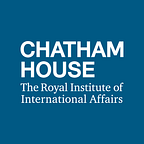Five Things You May Have Missed In the US and Americas This Week
(1) The death toll from Hurricane Maria vastly exceeds official government figures.
According to a new study published in the New England Journal of Medicine, the number of people that have died in Puerto Rico due to Hurricane Maria last year is ‘more than 70 times the official estimate’. The study estimates that the death toll exceeds 4,645, many of them as a result of delayed medical care, which is in stark contrast to the official government tally of 64. The report notes that their estimate is ‘likely to be conservative’. Official mortality statistics are based on death certificates in the US, and deaths can only be attributed to disasters by medical examiners, likely explaining the disparity between the two figures. The study notes that the difference between their statistics and the government’s underscores ‘the inattention of the US government to the frail infrastructure of Puerto Rico’.
Based on the study’s findings, it appears that more than twice as many people died from Hurricane Maria than from Hurricane Katrina in 2005, which killed 1,833 people.
(2) Colombia faces a presidential runoff which may jeopardize the FARC peace deal.
Sunday’s first-round Colombian presidential election is headed to a runoff after neither candidate reached the necessary 50 per cent to win outright. Hard-line conservative candidate Iván Duque will face off against progressive candidate and former guerrilla Gustavo Petro in a second ballot on 17 June. The support for Duque and Petro, who received 39 per cent and 24 per cent of the vote respectively, demonstrated a strong rejection of the mainstream parties, and also reflected significant polarization within the electorate. Duque has campaigned on a market-friendly economics platform while Petro vowed to close the inequality gap and criticized multinational mining companies that operate in Colombia.
The election is the first since a peace agreement was reached with the Revolutionary Armed Forces of Colombia (FARC) in 2016, and the deal remains politically divisive across the country. Duque, now the frontrunner to replace term-limited incumbent President Juan Manuel Santos, strongly opposes the deal. He has criticized it for being too soft on the FARC and said after his lead in the first round that ‘what we want is to make clear that a peaceful Colombia is a Colombia that is where peace is found through justice, where there is truth, there are reparations, and punishments are served’.
(3) Missouri governor Eric Greitens resigns amid multiple scandals.
The Republican governor of Missouri, Eric Greitens, announced his resignation at a press conference on Tuesday. He will be replaced by Missouri’s Lieutenant Governor, Mike Parson. Greitens’ resignation follows months of scandal in which he has been accused of sexual misconduct, blackmail, and tampering with a charity donor list. Greitens has maintained his innocence since the allegations first arose in January and has repeatedly refused to resign throughout the scandal in spite of calls from leading Republican politicians to do so, referring to it as a ‘political witch hunt’.
Greitens, a former Navy SEAL and the second youngest governor in the US, was originally considered a ‘wunderkind’ of the Republican Party. His resignation will come as a relief to Republicans who hope the scandal will no longer serve as a distraction for the upcoming November midterm elections. Republicans view Missouri as a battleground state for the US Senate and are still reeling from losing the Missouri State House special election to Democrats in February.
(4) Brazil truckers’ protests wind down after 10 days.
A 10-day protest by truck drivers across Brazil began to wind down on Wednesday. The truckers had refused to work and blockaded roads across the country to protest rising fuel costs, eventually evolving into a broader anti-government demonstration. The truckers’ strikes had paralysed Brazil since 21 May, as gas stations across the country dependent upon deliveries by road ran out of fuel. Brazil’s financial capital, São Paulo, declared a state of emergency when airports and ports were brought to a standstill, factories and schools were closed and supermarkets ran out of supplies as 70 million chickens were prematurely slaughtered.
In a further blow to the hugely unpopular government of Michel Temer, Brazilian oil workers also began a three-day strike on Wednesday, calling for lower fuel prices and the resignation of the president of the state-owned oil company, Petrobras.
(5) Trump threatens China with new tariffs.
The White House announced on Wednesday that it will impose a 25 per cent tariff on ‘$50 billion of goods imported from China containing industrially significant technology’. The move contradicts a claim made by Treasure Secretary Steve Mnuchin, that ‘we’re putting the trade war on hold, right now, we have agreed to put the tariffs on hold’. The ‘Made in China 2025’ programme — a plan by the Chinese government to transform the country into an advanced manufacturing economy that rivals other high-tech economies — was specifically identified as an area that will be subject to tariffs. Beijing has been accused of using commercial cyber-espionage to acquire advanced technologies to achieve this goal. The White House announced that the full list of imports subject to tariffs ‘will be announced by June 15, 2018’.
The announcement threatens to upend the third round of high-level talks between US and Chinese officials which are scheduled to begin this Saturday in Beijing. The Chinese government objected strongly to the announcement, stating that the decision was ‘obviously contrary to the consensus reached between the two sides in Washington not long ago’.
